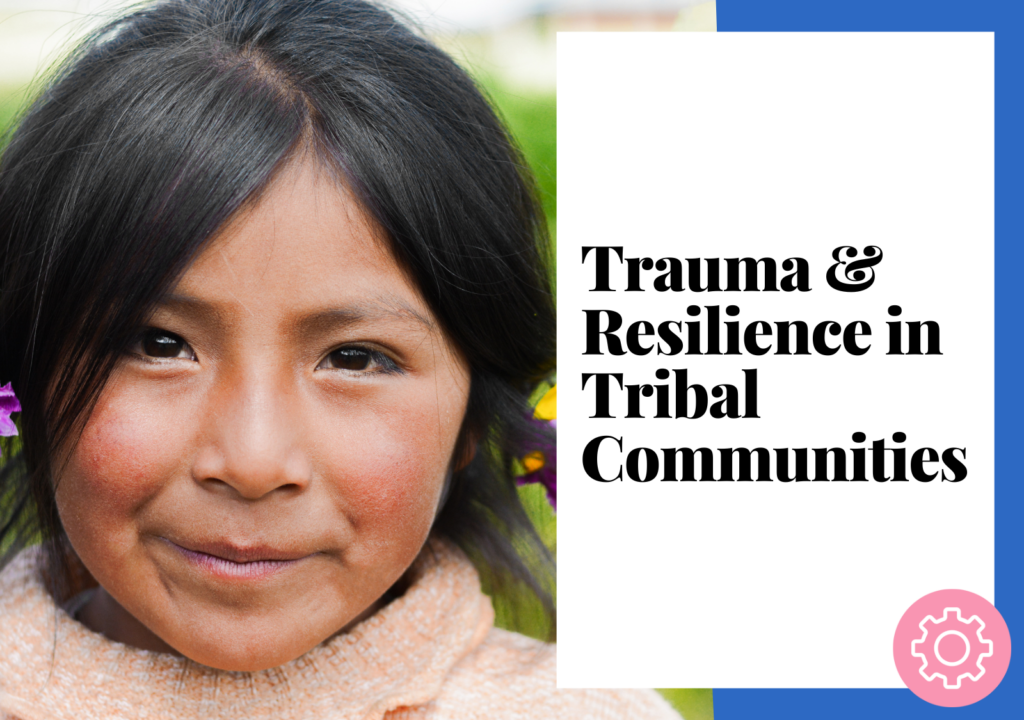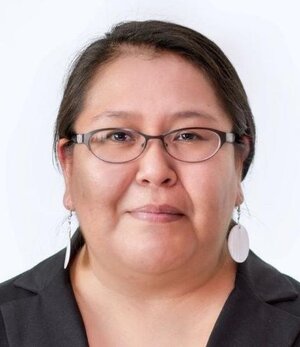Trauma & Resilience in Tribal Communities
This workshop was presented on June 6 & 7, 2023

This four-hour training is an introduction to research on trauma as it relates to AI/AN people and tribal communities, including trauma types, brain science, developmental and behavioral effects, and the interconnected nature of historical and current traumas. The workshop will also include practice scenarios and significant attention to resilience strategies.
Learners will be able to:
- Define key trauma terms and concepts
- Understand the concept of historical trauma in tribal communities
- Understand basic findings of trauma research
- Identify connections between trauma and child development
- Understand the concept of resilience
- Describe protective factors that build resilience
Who should attend: Staff of family resource centers, child abuse prevention councils (CAPCs), and other family-serving organizations who are interested in understanding the impacts of trauma and strategies to build resilience. This training applies to all people, professions, and systems and is useful to create a shared language and understanding of trauma and resilience.
IMPORTANT TRAINING INFORMATION:
- This is an interactive training. Please be prepared to participate in activities such as group discussion, break out rooms, and/or demonstration. Your training experience will be best with the use of a web cam, audio, and a training environment conducive to active participation.
- This training will be recorded. The recording will be available to registered learners within 2 days of the training.
- By registering for a CalTrin training, you consent to be added to the CalTrin mailing list.
TRAINING MATERIALS
- Day 1
- Recording
- Presentation Slides (1/page)
- Presentation Slides (3/page)
-
Day 2
- Recording
- Presentation Slides (1/page)
- Presentation Slides (3/page)
- National Native Children’s Trauma Center (NNCTC)
- Discussion Scenarios
- Original ACE Questionnaire (October 2006)
- Incidence of Adversity by Type (Original ACEs study)
- Immediate and Delayed Reactions to Trauma
- Health Connections Special: ACEs – Adverse Childhood Experiences (28:30) (Northern California Public Media, August 31, 2017)
- InBrief: The Science of Resilience (2:29) (Center on the Developing Child at Harvard University, April 22, 2015)
- Culture Protects Us (2:24) (National Native Children’s Trauma Center)
- Looking Forward from Yesterday (9:29) (MAPS Media Institute)
- Implementation Worksheet (downloadable .doc)
- Mindfulness & Meditation (Harvard University Health Services)
Training certificates are only available following live trainings or completion of self-paced courses. A certificate will not be provided for review of these materials.
MEET THE SPEAKERS
Veronica Willeto DeCrane, Training and Technical Assistance Manager for the National Native Children’s Trauma Center, is Diné (Navajo), of the Many Hogans Clan and born for the Mexican Clan. Her maternal grandfather is of the Tangle Clan, and her paternal grandfather is of the Bitter Water Clan. She was raised in Ojo Encino, New Mexico, on the Navajo reservation, and now lives in Billings, Montana with her husband and children. Veronica has worked in Indian Education and youth development for twelve years. She is currently President of the Montana Afterschool Alliance Steering Council. At the University of Montana’s National Native Children’s Trauma Center (NNCTC), she provides trauma-informed care training and technical assistance (TTA) for Tribal Youth Programs and Tribal Juvenile Healing to Wellness Courts in partnership with the Tribal Youth Resource Center. Veronica also offers TTA in education and in a variety of other tribal-child serving systems, facilitates the NNCTC’s Youth Advisory Council, supports cultural adaptation of trauma-informed care resources, and serves on the National Child Traumatic Stress Network Steering Committee.

VERONICA WILLETO DeCRANE
Training and Technical Assistance Manager, National Native Children’s Trauma Center
Amy Foster Wolferman, M.Ed, Director of School-Based Training and Technical Assistance for the National Native Children’s Trauma Center provides training and technical assistance to educators, school leaders, families, and community members in trauma resilient school systems and practices, secondary traumatic stress interventions, Trauma-Informed Positive Behavioral Interventions and Supports (PBIS), bullying prevention and suicide prevention. Ms. Foster Wolferman’s primary area of focus is helping schools support the social and emotional needs of students impacted by trauma. She co-authored the Bounce Back for Classrooms trauma-focused social skills curriculum; co-developed a trauma-informed systems change model, Trauma Resilient Schools with NNCTC colleagues; and co-wrote the Walking the Four Directions: Traditional View of Discipline trainer’s manual. In addition, she has served as an Implementation Specialist in Multi-Tiered Systems of Support (MTSS) and as a Consultant for Positive Behavioral Interventions and Supports (PBIS) for schools; and has a background in teaching, early childhood education, special education, and working with youth in the outdoors.

